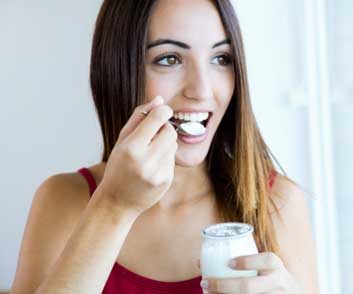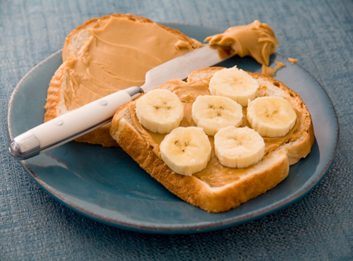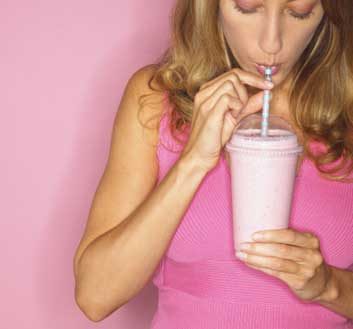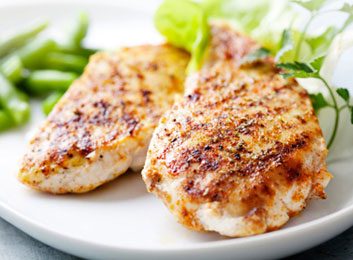
We need more protein
As the Canadian Society of Exercise Physiology notes, Canadians only eat about 17 percent of their calories from protein. “I know as dietitians we talk about portion control but I believe the next big thing we’re going to see is recommendations in the amount of protein we eat. It hasn’t been revisited since the mid-1960s,” says Gina Sunderland, a Winnipeg-based registered dietitian. “I predict that we’ll begin to see higher amount of protein recommendations for adults.”

It helps you feel full
“Protein induces satiety-it takes longer to break down and digest protein than carbohydrates so when we do have it at our meals, we feel fuller longer,” says Sunderland. Indeed, a 2014 study from the European Journal of Nutrition confirmed that high-protein meals offer more satiety than normal-protein meals.
Sunderland recommends a source of protein at every meal: Think eating an egg or protein-rich Greek yogurt at breakfast, adding some tuna to your lunch and some lean red meat, chicken or beans at dinner.

It prevents weight gain
Higher protein diets have been linked to weight loss, since protein curbs appetite and calorie intake. “Protein causes the brain to receive lower levels of hormones that stimulate appetite,” says Natalie Brown, a registered dietitian in White Rock, B.C. “Protein also stabilizes blood sugar levels by having fewer insulin spikes, which result in fewer cravings and portion control. With stabilized blood sugars, your energy levels will also improve.”

It boosts your lean body mass
“Sarcopenia is the loss of lean body mass as we journey throughout life,” notes Sunderland. “It’s thought to be normal that throughout each decade of life, we lose 10 to 12 percent of lean body mass. But some research shows that doesn’t have to be true. Increasing your protein intake can help increase lean body mass.”

It restores your muscles
“Protein can help with muscle regeneration since it helps repair tissues and muscles. It’s very important for maintaining healthy muscles,” says Brown. “After exercise or any muscle activity, protein is required for muscle regeneration.” That could be something as easy as a yogurt, peanut butter, a protein shake or chocolate milk after a strength-training session.

It keeps blood glucose in check
Proteins, especially milk-based, can help with blood glucose control (a.k.a. your blood sugars). As a story in the March 2013 edition of Today’s Dietitian reports, “the consumption of dairy products and their milk proteins improves satiety, and reduces food intake and blood glucose response when consumed alone or with carbohydrate.”

Keep your proteins lean
Protein should be just one part of a rounded meal-so avoid Atkins-style diets that encourage eating nothing but bacon and steak. A 2013 study from the journal Cell Metabolism concluded that “low protein intake during middle age followed by moderate-to-high protein consumption in old adults may optimize health span and longevity.” Of the study’s respondents, those between the ages of 50 to 65 who reported eating high amounts of protein had a 75 percent increase in overall mortality and an increase in cancer death in the next 18 years.
So how much should we have? Currently Canada’s Food Guide recommends two servings a day of meat and alternatives for women over the age of 14 (a serving equals ½ cup of meat or fish, two eggs or two tablespoons of peanut butter.) To take it further, Sunderland suggests calculating your protein needs based on your body weight, namely 1.2 grams of protein/kilogram of body weight.
Related:
• The 6 best sources of vegan protein
• Post-Workout Smoothie
• The 6 best sources of protein
